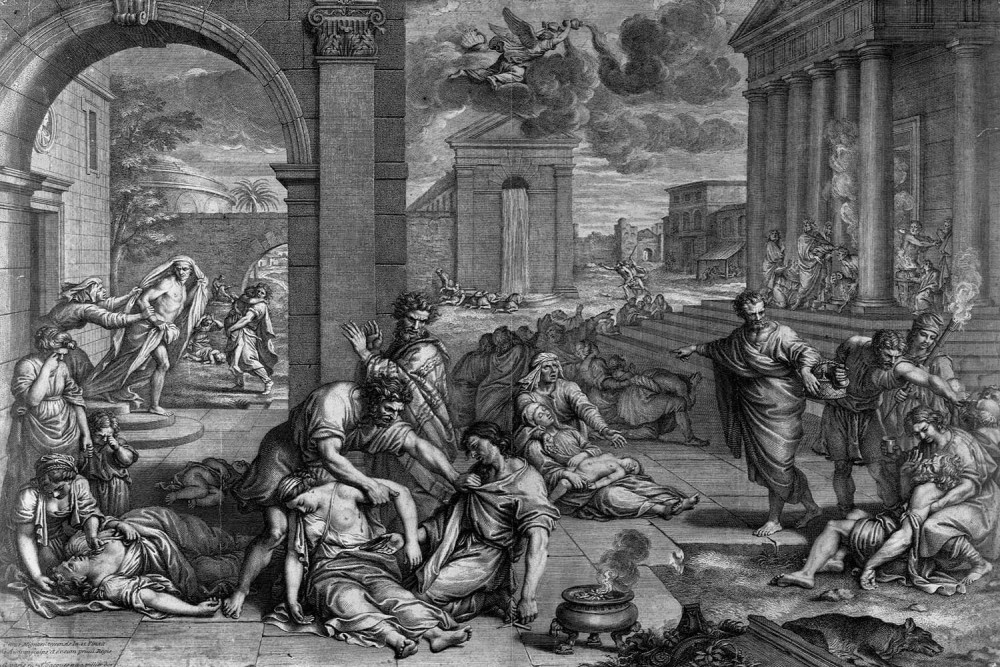COVID, Courage, and the Church
[A guest article by James Lowe]
I work for the ambulance service. In March, I attended an Orthodox priest in a richly decorated townhouse, stuffed full of interesting books and art. He had fainted after experiencing chest pain. It was explained that his pain might be indicative of a heart attack, and A&E should be attended. He remained light-hearted as we made jokes and discussed faith together. He made a powerful statement that has stayed with me: when criticising local Christians for their fearful response to COVID he stated, “We rest in the peace of God”. It was a powerful thing for an elderly man suffering a heart attack to say.
The priest was right. The church has been overzealous in its response to COVID. Many congregations are guilty of joining in with the mass panic that has characterised the global coronavirus response. Goaded by mainstream media outlets and most politicians, many withdrew personally and corporately. While much of the population was out panic buying toilet rolls, churches were busy panic planning the most radical reduction in Christian gathering in history. What has been fascinating is not the church’s obedience to the law, but it’s frequent decisions to go even further.

As good data has become abundant and the relatively low risk specified, the regulations have gradually been relaxed: improved data has brought the estimated fatality rate of 1.5% down to 0.6% https://www.statnews.com/2020/08/24/infection-fatality-rate-shows-covid-19-isnt-getting-less-deadly/. Furthermore, the age specific data shows that under 65s are 30 to 100 times less likely to die than over 65s – in the UK that’s about the same risk as driving 100-400 miles. https://www.ncbi.nlm.nih.gov/pmc/articles/PMC7327471/ This has encouraged many to call for more targeted lockdown restrictions or even a complete end. https://newsopener.com/uk/leading-academics-write-open-letter-to-boris-johnson-warning-against-second-lockdown/
Astonishingly, our congregation has consistently been more risk-averse than the government – all despite having less to fear from death and so much to gain from meeting. The relaxing of laws to allow groups of thirty to meet in person saw the congregation continue purely online. Now that the further relaxing of rules permits congregations of any size to meet, they have begun to run services of thirty. House groups are still meeting solely online.
Murrow, writing in the book ‘Why Men Hate Going To Church’, criticises the character of the western church as risk-averse and consisting of predominantly comfort-seeking congregants. The pandemic has born out this sad reality.
Murrow goes further and states that this attitude pushes away most men as they tend to value risk; “Real men visit our churches, look around at the soft males sitting in the soft pews and beat a path to the exit. Real men do not want to be safe – they want to be dangerous.” (Ibid. p.75)
This is not hyperbole. I, as a risk-loving man who follows Christ for the righteous adventure he calls us on, am becoming rapidly disenfranchised by a church culture of fear. I simply cannot relate to those who avoid risk and who will accept severe curtailments of essential, ordained Christian traditions to reduce it.
As Murrow implores churches to ‘set the thermostat to challenge’ he warns of countless men like Al Perkins who confides, “When you reject the things I stand for – excellence, strategic thinking, progress, efficiency, vision, controlled risks – you reject me. I used to take it personally, but I’ve minimised the anger by making my church involvement less of a priority.” (Ibid. p.39, emphasis mine)
When you use a compass, you must account for the ‘magnetic declination’ local to the area. This is the variance in the magnetic field, which shifts over time and often pulls compass needles 15 or more degrees off true north. The West has a ‘risk declination’, and we must account for it when journeying with God. We will be far more risk-averse than previous generations, and so the commands of God and the traditions of our forebears will increasingly seem reckless.
In Risk Is Right, John Piper bluntly attacks risk aversion in Christians and their seduction by the “beguiling enchantment of security” (p35), reminding us that “to live is Christ and to die is gain” (Phil. 1:21)
We would do well to remember the godly sacrifices we esteem. These giants of the faith embraced risk knowing that the reward was greater. They trusted God with the outcome – even if the outcome was death. As Piper asserts “It is the will of God that we be uncertain about how life on Earth will turn out for us. And therefore it is the will of the LORD that we take risks for the cause of God.” (p30)
Let’s look back specifically to our Christian heritage of fearlessness in the face of pandemics.
In describing how bravely Christians dealt with the Plague of Cyprian ravaging the Roman Empire, Bishop Dionysius declares “Heedless of danger [they] took charge of the sick, attending to their every need.”
In a brilliant article summarising Christian responses to pandemics over the millennia, Lyman Stone reminds us of Luther’s loss of his daughter during the bubonic plague. This inspired him to write powerfully of Christian responsibility during pandemics; “Luther provides a clear articulation of the Christian epidemic response: We die at our posts.” https://foreignpolicy.com/2020/03/13/christianity-epidemics-2000-years-should-i-still-go-to-church-coronavirus/

Now of course, the modern understanding of pathogens and expansive healthcare infrastructure alter this response in the West. We might not need to volunteer to treat the sick – in our own countries at least – but we must remain at our stations. In times of crisis – any crisis – the church becomes paramount. It is not just a practical place of care but also a buttress for our very civilisation. A candle in the darkness. An anchor in the storm. Panic is contagious, but so is peace.
In the face of all these warnings, we must continue to see our physical community as vital and seek to care for the spiritually sick – even as that increases our own chance of loss. (Speaking personally, I see the church’s duty to meet in person as far greater than my duty to serve in the ambulance service).
Ultimately the world doesn’t need to ‘not die’ because that will happen anyway. Rather, the world needs to not fear death and to know the glory that lies beyond it. Our peace within risk is one of our great testimonies to the reality of God. We ought not to relinquish it if we wish our words to mean something to unbelievers.
This week I took an 18-year-old girl
to A&E. Against policy I allowed her mother to accompany us in order to
comfort this distraught patient. The hospital staff turned mum away and
explained, unconcerned, that they don’t allow relatives with adult patients. I
was aghast. That mother had been woken that morning by her daughter bleeding
profusely from self-inflicted wounds. She had then confessed that she wanted to
die. Her daughter came here not just for effective management of Covid risk,
but also for compassion. I caution you not to let zeal in one area to crush
excellence in another.
After all, health is yet another treasure we store on
earth.
Throughout the ages the church has been willing to risk prosecution and death in pursuit of righteousness and the Christian way of life. Even now brothers and sisters all over the world are risking arrest for meeting in person. Their faith is cast as treason or sedition and they are prosecuted or persecuted as such. So too in our time is the avoidance of people being classed as a benevolent act and church gatherings an unnecessary danger. The church is in danger of being persuaded that the government may both define compassion and instruct us on what our greatest fear should be.
During the pandemic, Christians should continue to meet in the way which best serves their God and not expect the government to have God's will at the centre of their Covid response. Nor should they expect to always be living in accordance with the law of the land; The Christian Life is not the law’s ultimate inspiration. If we will not practice civil disobedience, let us at least maximise our statutory freedom and drag our heels with every reduction in the life of the church.
On Earth, we have no certainty of fair return for our risk. That waits for us in Heaven. There is no promise of safety – only a guarantee of danger. This time is an opportunity to test our commitment to fellowship, so do not refer to online meetings as ‘being together’. Paul did not solely write letters from a safe location. Nor did God speak only through prophets. He came to be among us, in person, at great cost.
Let us never lose our affinity for righteous risk.
For more, see Jame’s Blog https://thelostartdotlife.wordpress.com/
Download a FREE e-copy of Joshua’s book: Elijah Devotional


totally agree
ReplyDeleteYou have worked nicely with your insights that makes our work shockwave therapy brampton. The information you have provided is really factual and significant for us. Keep sharing these types of article, Thank you.
ReplyDeleteIt is truly a well-researched content and excellent wording. I got so engaged in this material that I couldn’t wait to read. Read more info about Regenerative Medicine Treatment in Honduras. I am impressed with your work and skill. Thanks.
ReplyDelete